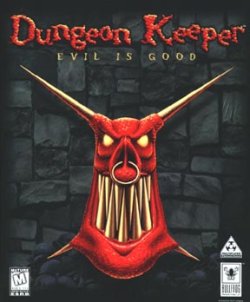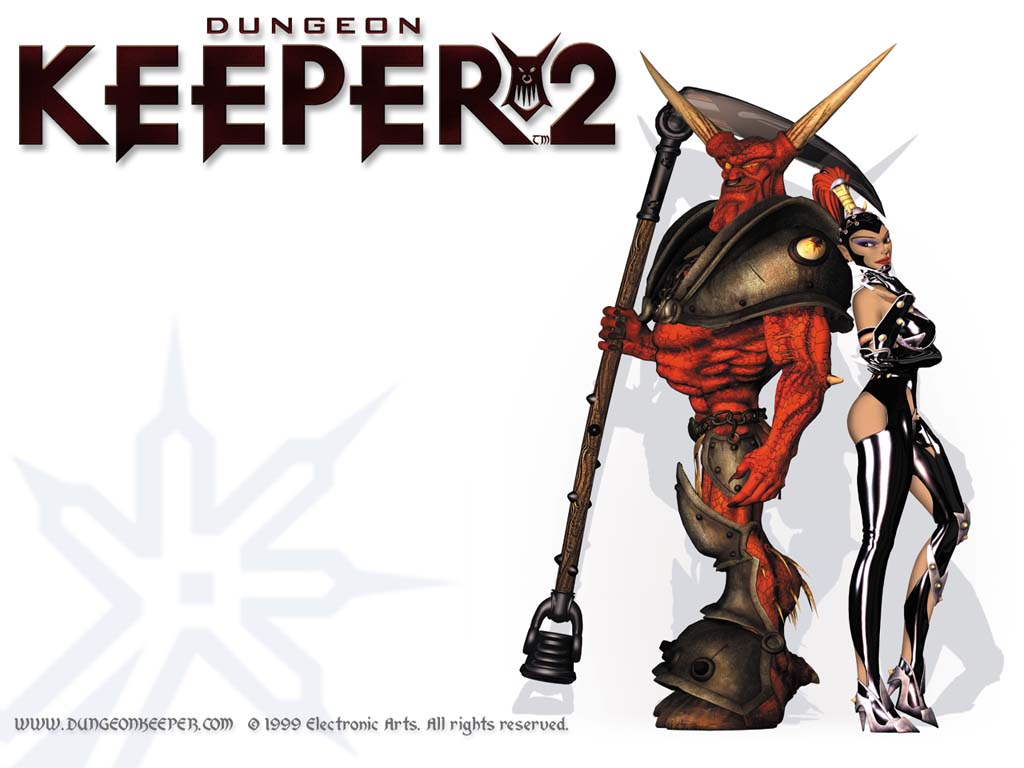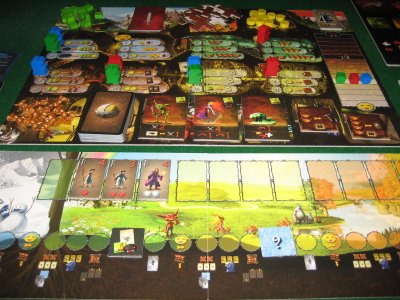
In Pandemic, you work for the CDC when suddenly BLAMO!!! Not one, not two, not three, but FOUR SIMULTANEOUS AND GEOGRAPHICALLY LIMITED EPIDEMIC PANDEMICS ATTACK THE EARTH! As one of the various CDC roles, your goal is to run around the world and find the cure to infection before any or all of the diseases get completely out of hand.

As a fully cooperative game, there are no secrets between players and full collaboration is encouraged and generally required to win the game. Every turn, you have 4 actions that you can use to move, build, cure, trade, or research. After your actions, you draw (almost always) helpful cards that correspond to the geographic cities on the map followed by revealing several infection cards that will force you to place miserable disease cubes on the board. If you get too many disease cubes, there is an outbreak. The goal of the game is to collect the right cards to research the cures but in the meanwhile you need to manage the diseases so that there aren't too many deaths (outbreaks) and prevent any disease from becoming so prolific it becomes unstoppable (all cubes of one of the four colors is gone). Additionally, you can die by running out the geographic location deck. Oh, and one other thing - the deck where you get good cards from? Every once in awhile, you'll flip an epidemic that will ravage a new city. If you find all 4 cures (having 5 of a specific color of card and going to a research station) before the game end, you all win. Simple as that.
Or is it?
Yes it is because the game is really easy to play, it just isn't necessarily easy to win.
FUN: 3 - Pandemic is a perfect example of a '3' game for me - I'm almost always amenable to playing but I will rarely suggest playing it (unless I'm trying to hook new gamers). I don't own Pandemic and I never hope to, in large part because enough people own it so that I can pick it up or put it down any time I like. Here's the thing about Pandemic: it's really just a big random number generator puzzle. Now, I love playing "puzzle games" because sitting around figuring out the most efficient path to victory is entertaining for me, but ultimately, it is more of a puzzle than a game. That being said, Pandemic is NOT forgiving. If you spend almost any time durdling (slang; wasting time) you will lose and wonder why even though picking up that one cube in Santiago may not have been the best play. The nice thing is that it's over in 35 minutes and you can give it a second or third shot. What Pandemic does really well is engage you - turns are generally fast and you always want to be paying attention to what your doctors-in-arms are doing. Additionally, it's easy to bring new people into Pandemic, hold their hand through the first game, and then play a second right after.
STRATEGY: 2 - Pandemic has what I refer to as a "Strategy Shelf" - the point you reach where you literally can't get any better at the game. It doesn't take long to get there in Pandemic. In my mind, there are three levels of learning in Pandemic:
- Holy shit there are cubes everywhere! ANOTHER EPIDEMIC ARE YOU KIDDING ME WE HAVENT EVEN HAD THE CHANCE TO CLEAN EVERYTHING UP? How in the hell do I get 5 cards?
- Ohhhhh, I'm supposed to RESEARCH cures not clean up all the cubes. I can even trade cards with other players! Epidemic, huh? JOHANNESBURG??!? F&^#$%
- Oh man, understanding when to use my cards to fly places (and charter flights especially) makes me amazing at this game. Also, tactical research station placement! Who woulda thought?
Once you start figuring out the "systems" in Pandemic, you're usually just applying your new understanding to slightly different situations. Sometimes it is harder than others, but for the most part you know that the Operations Expert is supposed to drop bases everywhere and that you load up the players with redundant cards with more of the same card to win ASAP.
One other thing I will note about Pandemic in terms of the luck of flipping cards: it is my opinion (particularly in a 4-player game) where you can play near perfectly and still lose to bad card draws. If everyone draws an equal distribution of colors, you are in for a world of pain (because everyone is sick and the symptoms are violent). On the other hand, in a 2-player game, the game is basically impossible to lose once you get the hang of things - I can go into a complicated statistical treatise (that has been composed in my head) of this but it basically comes down to an increased likelihood of color density in your card draws.
SOCIAL: 5 - I mean, I called it the gold standard of cooperative games. What do we play cooperative games for other than to...uh...cooperate with one another? I actually think it could be fun to try a version of Pandemic where the players NEVER speak to one another, and see what you can do with that and if you can operate on the same wavelengths (warning: only for experienced players who have immense patience with their fellow gamers) but I would only do it once because the cooperation aspect is the reason why I play this game. One word of warning though, the social value of this game PLUMMETS if you attempt to play for other players. I myself am guilty of this mistake once or twice, but when you just start bossing other players around instead of including them ("Dispatcher, move me to Miami to meet up with Alexander Flemming. Just do it!") they start to get really bored of the game. If you have a plan, explain it to people and see what they think of it. It's an egalitarian game, not a despotic one.
FLAVOR:1 - Ugh. I want to give this game more than a 1 because the idea of a disease game is just SO DAMN COOL. But the flavor in this game has absolutely nothing to do with the mechanics. The fact that there are four simultaneous epidemics that don't spill over into other regions is...painful enough. The fact that pulling 5 cards of a colored region is the key to curing a disease is a joke. The fact that I have to meet you in Algiers (specifically) where there isn't a single bit of disease in order to pass off my Algerian knowledge of the Black Death is just an extra dagger in the heart.
 |
| What? This photo doesn't invoke terror in your soul? It should. |
When bashing games for their flavor, I often like to think about how else the game could be skinned (themed) so that the gameplay and feel of the game is the EXACT SAME. The best part of this anecdote is that I wasn't even playing in the game that it happened in. My college buddy, Eric, and I were really into Warhammer 40,000. Not the miniatures game, just the flavor of the world. One time, Eric corralled the rest of our friends into playing "For the Emperor" a game where the Space Marines had to face the simultaneous invasions of the forces of Chaos, the Orkz, the Eldar, and the Necrons. Geographic cards become battleground locations, and having 5 battleground locations meant you won a crushing campaign against the enemy space race. Let me tell you, the cries of "I shall suffer no heretics!" changed the gameplay in absolutely no way, but instead enhanced the experience.
MISCELLANEOUS: 3 - The pieces in Pandemic are alright, the rules are easy enough to follow and explain, but the thing that really sticks out to me in the Miscellaneous category is that I play Pandemic for the niche role that it fulfills. If I'm looking for a quick, easy-to-teach, cooperative game, Pandemic is the go to. There are some other fine options, but I think Pandemic really just does it in a sleek way. Pandemic is an incredibly accessible game, but it also appeals to heartier gamers looking for something simple. That being said, Pandemic really ONLY fills that specific role. To be fair, that is all it seeks to do.
Parting thoughts on strategy: I already touched on this earlier, but the goal of the game is to research cures. Make sure to utilize trading and flying (to facilitate trades). I can't emphasize how powerful charter flights are once you actually understand what you are doing, particularly in a 2-player game (because you need to cover more ground and you tend to have less bases). By the way, a good Operations Expert (using the modified OE from the expansion) should just spend the first turns making the entire board easily accessible.
Bless your soul for curing all the world's diseases.













